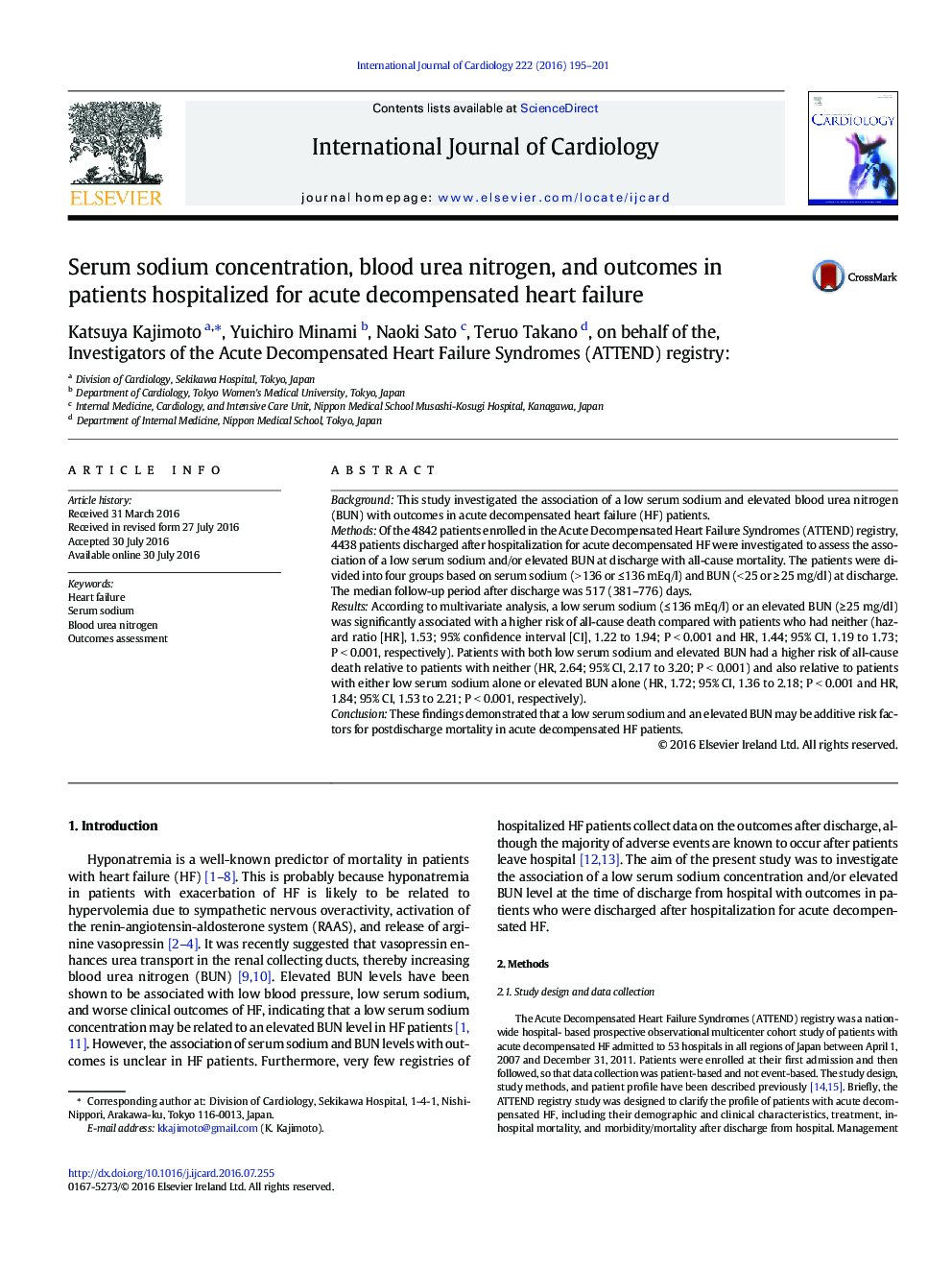| Article ID | Journal | Published Year | Pages | File Type |
|---|---|---|---|---|
| 5962633 | International Journal of Cardiology | 2016 | 7 Pages |
BackgroundThis study investigated the association of a low serum sodium and elevated blood urea nitrogen (BUN) with outcomes in acute decompensated heart failure (HF) patients.MethodsOf the 4842 patients enrolled in the Acute Decompensated Heart Failure Syndromes (ATTEND) registry, 4438 patients discharged after hospitalization for acute decompensated HF were investigated to assess the association of a low serum sodium and/or elevated BUN at discharge with all-cause mortality. The patients were divided into four groups based on serum sodium (> 136 or â¤Â 136 mEq/l) and BUN (< 25 or â¥Â 25 mg/dl) at discharge. The median follow-up period after discharge was 517 (381-776) days.ResultsAccording to multivariate analysis, a low serum sodium (â¤Â 136 mEq/l) or an elevated BUN (â¥Â 25 mg/dl) was significantly associated with a higher risk of all-cause death compared with patients who had neither (hazard ratio [HR], 1.53; 95% confidence interval [CI], 1.22 to 1.94; P < 0.001 and HR, 1.44; 95% CI, 1.19 to 1.73; P < 0.001, respectively). Patients with both low serum sodium and elevated BUN had a higher risk of all-cause death relative to patients with neither (HR, 2.64; 95% CI, 2.17 to 3.20; P < 0.001) and also relative to patients with either low serum sodium alone or elevated BUN alone (HR, 1.72; 95% CI, 1.36 to 2.18; P < 0.001 and HR, 1.84; 95% CI, 1.53 to 2.21; P < 0.001, respectively).ConclusionThese findings demonstrated that a low serum sodium and an elevated BUN may be additive risk factors for postdischarge mortality in acute decompensated HF patients.
